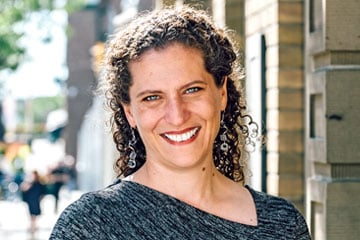
An Ontario Superior Court judge has ruled that he has jurisdiction under what he described as “the law of groups” to review decisions by student unions at three post-secondary institutions that denied official status to two anti-abortion groups and a “men’s rights” organization.

An Ontario Superior Court judge has ruled that he has jurisdiction under what he described as “the law of groups” to review decisions by student unions at three post-secondary institutions that denied official status to two anti-abortion groups and a “men’s rights” organization.
“The court has the jurisdiction to enforce the contractual rights between an association and its members and the contractual rights of the members between or among themselves,” wrote Justice Paul Perell in three rulings issued on Feb. 26.
The applicants had “exhausted their internal remedies” so it was appropriate for a court to adjudicate the dispute.
Perell heard three applications together that challenged decisions made by the student unions at Ryerson, the Mississauga campus of the University of Toronto and the one that, until recently, represented students both at Durham College and the University of Ontario Institute of Technology.
The Superior Court judge ultimately upheld the decisions of the student unions and found their process did not breach the principles of natural justice.
But Perell also set out a five-step test for courts to use on whether to review a decision of an organization when the public law does not apply.
Alexi Wood, who acted for the Ryerson and University of Toronto student unions, says the rulings uphold the decision-making authority of these types of organizations.
“The takeaway for groups is they have the power to pass their own policies and procedures. You need to be fair and you need to apply them consistently,” says Wood, a partner at St. Lawrence Barristers LLP in Toronto.
The test set out by Perell “provides reasons for courts to decline jurisdiction” in other applications of this nature, says Andrea Sanche, who acted for the Durham/UOIT student union and is a partner at Ricketts Harris LLP in Toronto.
“It will be very much a factual question,” she adds.
Two of the proposed student groups had an anti-abortion focus. The Ryerson group was called the “Men’s Issues Awareness Society,” with a stated purpose of bringing awareness to issues that disproportionately impact men and boys.
Official status would entitle the groups to funding that ranged from between $350 and $1,200 annually as well as access to facilities for meetings. The student unions are all non-profit, independent organizations incorporated under the provincial Corporations Act.
The court applications asked for the decisions by the student unions to be quashed, arguing that they were made in bad faith, breached principles of natural justice and were contrary to the Charter values of freedom of expression and freedom of association.
Perell, in his rulings, noted that the Supreme Court decided in 1990 that universities are not government actors, and another recent Superior Court ruling involving Ryerson found that student unions are not subject to the Charter.
The judge observed that the Durham group, called Speak for the Weak, is “thriving on campus” despite not being an official group or receiving $750 in annual funding.
“If the Canadian Charter of Rights applied to this case, and it does not, in no way have the Applicants’ rights to associate and to express and to proselytize their views been infringed,” wrote Perell.
“In the circumstances of the three cases, with some exceptions, the law that applies is the private law of groups. Under this law, a court has only a limited jurisdiction to review the conduct and decisions of an association,” Perell wrote.
Marty Moore, who acted for the applicants in the three cases, says that, despite the ultimate conclusion, he is pleased the court found it had jurisdiction.
“Justice Perell is setting out an important check on the decisions of student unions,” says Moore, a staff lawyer at the Calgary-based Justice Centre for Constitutional Freedoms.
The organization has previously acted in campus-related disputes in Alberta and Ontario for students opposed to abortion and same-sex marriage. It is appealing a Court of Queen’s Bench ruling last fall that upheld a decision of the University of Alberta that required the “UAlberta Pro-Life” group to pay the security costs for an antiabortion event on campus.
In Ontario, the student applicants “had nowhere else to turn,” which is why they sought judicial review, Moore explains.
Whether to file an appeal has not yet been decided, but Moore disagrees that the freedom of expression of the students has not been infringed.
“Club status is about the exchange of ideas,” he says.
While the rulings involved social issues that can attract strong opinions, the legal analysis conducted by Perell may be of assistance to charities and other non-profit groups, notes Sanche.
“The analytical framework explains what decisions might attract court scrutiny. It is good practice for organizations to ensure their policies and procedures are known by its members,” she explains.